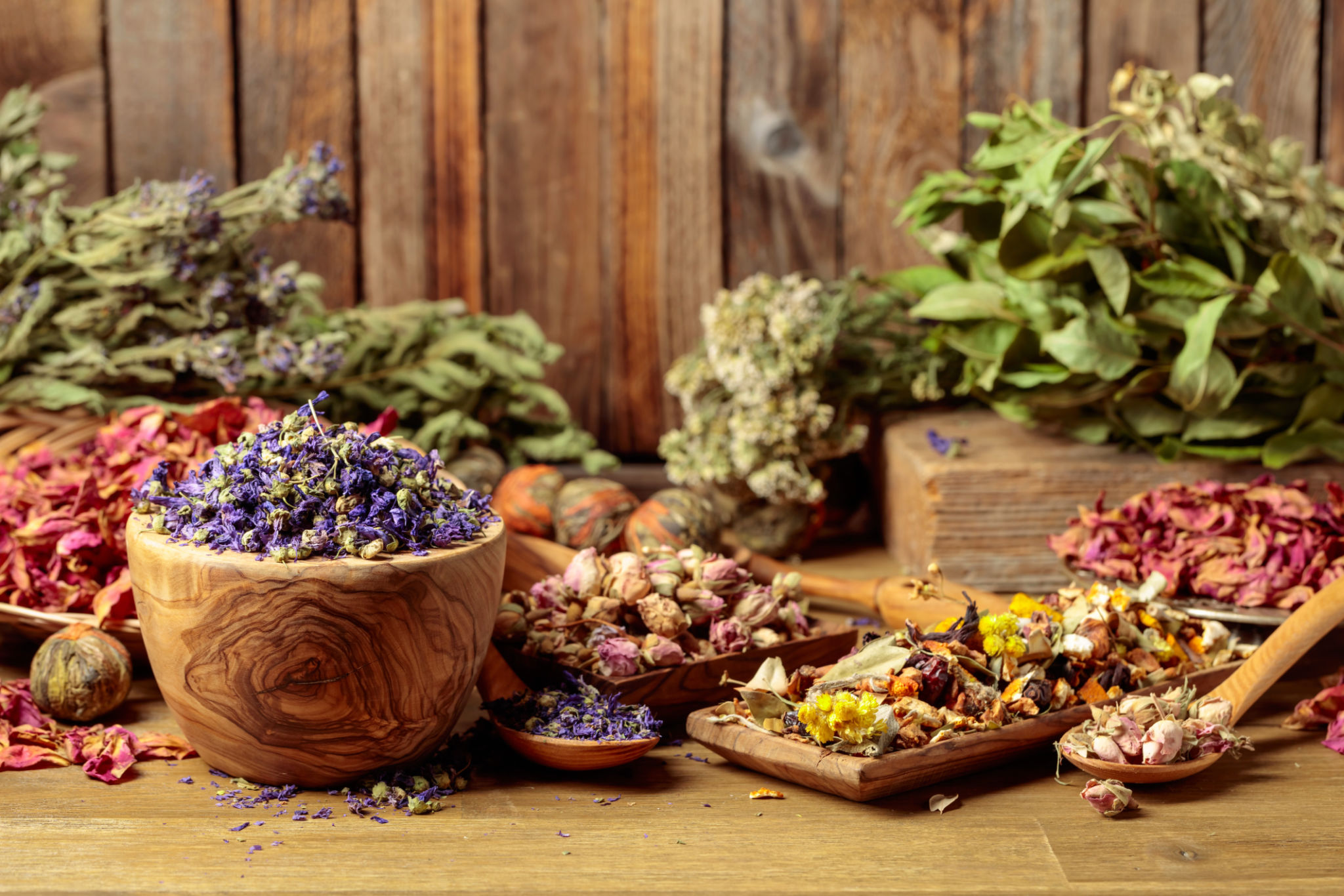The Role of Herbs in Seasonal Wellness: Preparing for Winter
Understanding the Importance of Seasonal Wellness
As the days grow shorter and temperatures drop, our bodies need extra support to maintain optimal health. Winter presents unique challenges, such as increased exposure to colds and flu, dry skin, and lower energy levels. Incorporating herbs into your wellness routine can be a natural and effective way to bolster your immune system and prepare for the colder months ahead.

Boosting Immunity with Herbal Allies
Herbs have been used for centuries to support the immune system. During winter, it's crucial to enhance your body's defenses against common illnesses. Some powerful immune-boosting herbs include:
- Echinacea: Known for its ability to reduce the duration and severity of colds.
- Astragalus: A root that strengthens the immune response and increases resistance to infection.
- Ginger: With its anti-inflammatory properties, ginger helps soothe sore throats and boost immunity.
Promoting Respiratory Health
Winter often brings with it respiratory issues, from colds to more complicated conditions. Certain herbs can help maintain respiratory health and alleviate symptoms:
Eucalyptus: This herb is excellent for clearing nasal congestion and soothing coughs. You can use eucalyptus in steam inhalation or as an essential oil.
Mullein: Known for its expectorant properties, mullein helps clear mucus from the lungs and can be consumed as a tea or tincture.

Supporting Digestive Health During Winter
The holiday season is often synonymous with indulgent foods, which can take a toll on our digestive system. Incorporating herbs that support digestion can prevent discomfort and promote overall gut health:
- Peppermint: Helps relieve bloating and gas, making it a perfect after-meal tea.
- Dandelion root: Supports liver function and aids digestion through its mild diuretic properties.
- Fennel: Known for easing digestive issues like indigestion and cramps.
Nurturing Skin Health Naturally
Cold winter air and indoor heating can lead to dry, irritated skin. Herbal remedies provide natural moisturizing and healing benefits. Consider incorporating these herbs into your skincare routine:
Aloe Vera: Renowned for its soothing and hydrating qualities, aloe vera can be applied directly to the skin.
Calendula: This herb is excellent for healing dry, cracked skin due to its anti-inflammatory properties.

Enhancing Mood and Energy Levels
The lack of sunlight during winter can affect our mood and energy levels. Certain herbs can help uplift the spirit and invigorate the body:
Siberian Ginseng: Known for its adaptogenic properties, it helps reduce fatigue and stress.
St. John’s Wort: Often used to combat mild depression and enhance mood during the darker months.
Incorporating Herbs into Your Daily Routine
Integrating herbs into your daily routine is easier than you might think. Here are a few tips to get started:
- Add herbal teas to your daily hydration regimen for specific health benefits.
- Incorporate herbal supplements or tinctures as recommended by a healthcare professional.
- Use essential oils in diffusers or baths for aromatic benefits and relaxation.
By understanding the role of herbs in seasonal wellness, you can better prepare yourself mentally and physically for winter. These natural allies not only provide health benefits but also offer a sense of connection to nature's healing power, promoting well-being throughout the season.